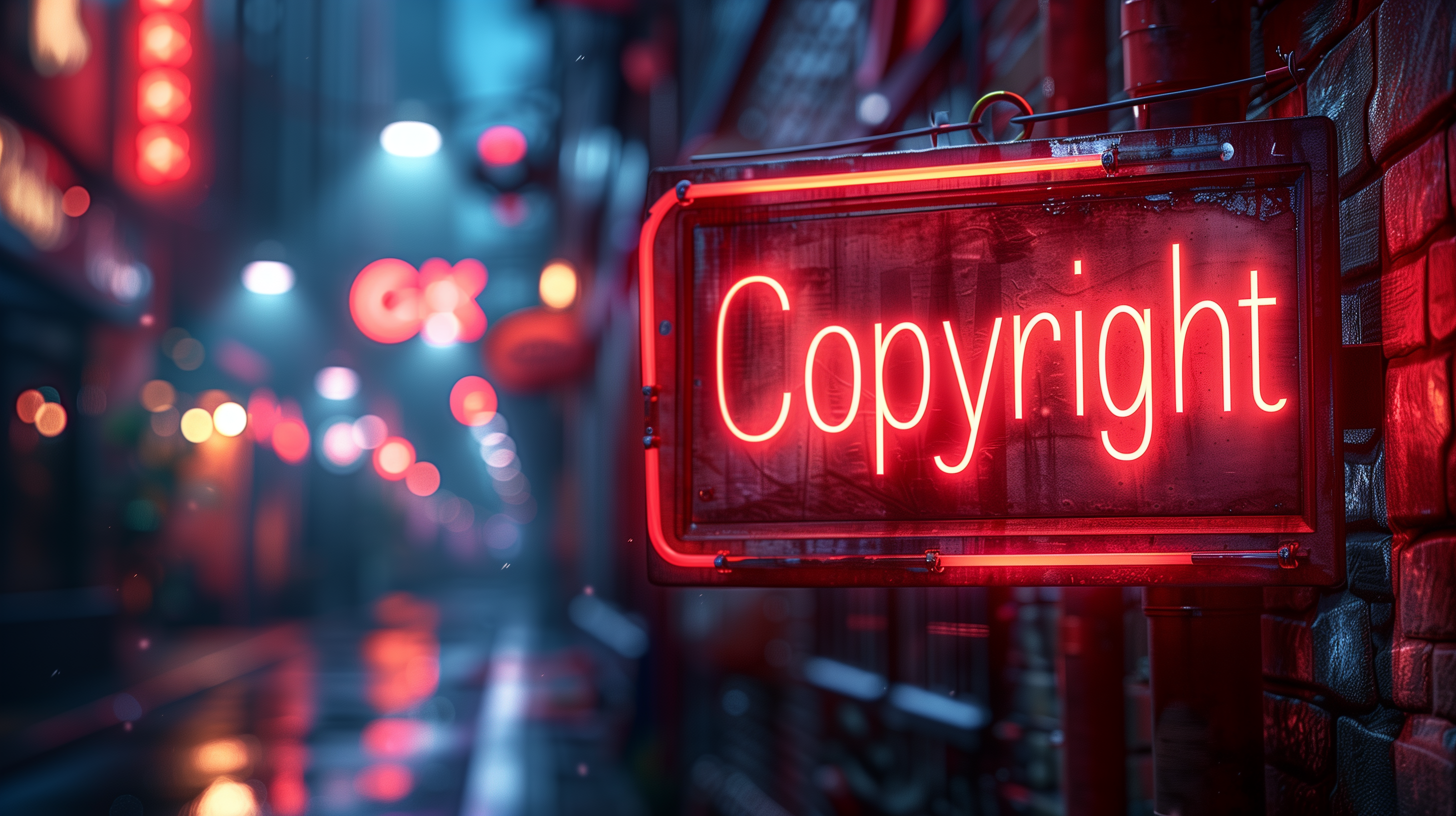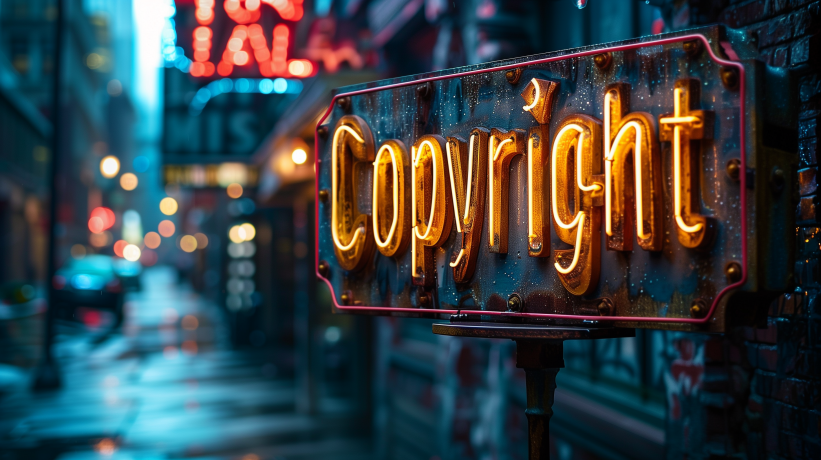
Snoop Dogg and associates are entangled in a legal dispute over alleged copyright infringement involving music on his latest album. The lawsuit highlights critical issues surrounding copyright laws, unauthorized use, and the implications for artists and the NFT industry.
by LawInc Staff
July 17, 2024
Rapper Snoop Dogg and several associates are facing a major copyright infringement lawsuit over unauthorized use of music on his latest album. This guide breaks down everything you need to know about the case.
1. Understand the Key Facts of the Case
-
- Plaintiff: Trevor Lawrence Jr., musician/producer who created the original music at issue.
- Defendants: Calvin Broadus Jr. (Snoop Dogg), Death Row Records, Blockchain Game Partners, and Does 1-10.
- Copyrighted Works: Lawrence’s musical compositions and sound recordings entitled “Pop Pop Pop Goes My 9” and “Get This D with Hook”.
- Accused Works: Snoop Dogg’s album tracks “Pop Pop” and “Get This ****”, allegedly unauthorized derivative works of Lawrence’s music.
- Unauthorized Usage: Releasing the tracks on the album, allowing use in “Stash Box” NFT bundles without license or compensation to Lawrence.
Key Takeaways:
-
- Lawrence created and owns copyrights to the original musical compositions and sound recordings at issue.
- Snoop Dogg and associates allegedly infringed by making derivative works without permission or compensation.
- The accused songs were not only released on an album but used in a lucrative NFT bundle offering as well.
- Lawrence asserts he never authorized or was paid for this widespread commercial exploitation of his music.
2. Differentiate the Exclusive Rights Protected by Copyright
-
- Reproduction: Making copies of the copyrighted work.
- Adaptation: Preparing derivative works based on the original.
- Distribution: Distributing copies of the work to the public.
- Public Performance: Performing the copyrighted work publicly.
- Digital Transmissions: Transmitting digital audio of songs (for sound recordings).
Examples in the Case:
-
- Snoop violated the reproduction right by allegedly copying Lawrence’s music to make his album tracks without permission.
- The adaptation right was infringed as Snoop’s songs constitute unauthorized derivative works of Lawrence’s originals.
- Offering the album for sale and including the songs in NFT bundles are unlicensed distributions to the public.
- Unauthorized online streaming of the album songs violates Lawrence’s exclusive public performance rights.
- If the songs were made available for individual digital purchase/download, that would infringe the digital transmission right.
FAQs:
-
- Is unlicensed music sampling considered copyright infringement? Yes. Using any part of someone’s song without permission, no matter how short, can violate their rights.
- What if I change the music a lot in my version? Alterations don’t allow you to evade infringement liability. Derivatives can be quite different from the original.
- If I’m not selling my remix, is it still infringement? Yes. Any unauthorized use that implicates an exclusive right (reproduction, adaptation, etc.) can be infringement, commercial or not.
- How do I get permission to use someone’s music? You need to identify the copyright owners (composer and recording artist) and negotiate licenses from all of them.
- Are there any defenses to a music copyright lawsuit? Common defenses are arguing the material isn’t copyrightable, the plaintiff doesn’t own it, or your use was fair use or de minimis.
3. Break Down the Causes of Action in the Case
-
- Direct Copyright Infringement: Defendants violated Lawrence’s exclusive rights by reproducing, distributing and performing the infringing works without license.
- Contributory Copyright Infringement: Defendants induced and materially contributed to others’ direct infringement, such as third parties distributing the album.
- Vicarious Copyright Infringement: Defendants profited from third party direct infringement while failing to exercise their right and ability to stop it.
Elements of Proof:
-
- Direct Infringement: (1) Ownership of valid copyright; and (2) Violation of at least one exclusive right.
- Contributory: (1) Direct infringement by third party; (2) Defendant knew of the infringement; and (3) induced, caused or materially contributed to it.
- Vicarious: (1) Direct infringement by third party; (2) Defendant profited from it; and (3) had right and ability to supervise but didn’t.
- Lawrence will need to prove ownership of the music copyrights and that each type of infringement occurred as described.
Potential Defenses:
-
- Lawrence doesn’t actually own valid copyrights to the music used. However, he registered the songs with the Copyright Office.
- Any copying was de minimis and not substantially similar. Will be tough given how much of the original songs were taken.
- The material isn’t original enough to be copyrightable in the first place. An uphill battle as the threshold for originality is quite low.
- The use was fair use for purposes like parody or commentary. Unlikely to prevail given the highly commercial nature of the usage.
- Lawrence granted an implied license by sending the beats. Undercut by the expectation a written agreement and payment were required.
What’s At Stake:
-
- Lawrence seeks actual damages (his losses) and disgorgement of Defendants’ profits from the infringement, which could be substantial.
- He wants an injunction to stop all further infringement, such as taking the album offline and barring more NFT bundles.
- Also requested is impoundment and destruction of all infringing copies to get the offending material off the market.
- If Lawrence elects statutory damages, the court could award $30,000 up to $150,000 per work if infringement was willful.
- Snoop and team risk major financial liability, disruption to their music business, and a public relations nightmare from the suit.
Key Takeaways
This copyright infringement lawsuit against Snoop Dogg and his associates serves as a cautionary tale about the importance of securing proper permissions and licenses when using someone else’s music. Key points are:
- Copyright owners have exclusive rights to control reproduction, adaptation, distribution, public performance and digital transmissions of their songs.
- Violating any of those rights, whether by unauthorized sampling, remixing, releasing, streaming or selling the music can constitute infringement.
- Infringement can be direct (your own violations), contributory (assisting/inducing others’ infringement), or vicarious (profiting from others’ infringement you had power to stop).
- Damages can include actual losses, disgorgement of the infringer’s profits, and statutory damages up to $150,000 per work for willful infringement.
- Injunctions to stop further infringement and destruction of infringing material are also common remedies awarded by courts.
Bottom line – get permission, get it in writing, and get counsel from an experienced copyright lawyer before using anyone else’s music. A little legal legwork upfront can prevent a lot of liabilities down the line.
Test Your Knowledge of Music Copyright Law
Questions:
- Can you legally sample a few seconds of someone’s song without permission?
- Yes, if it’s less than 5 seconds long
- No, any unauthorized sampling is infringement
- Only if you give the artist credit
- Yes, if you use the sample in a remix
- If you create a remix without permission, what’s the best defense to copyright infringement?
- I changed the song a lot in my remix
- I gave the original artist credit
- I didn’t sell my remix, I gave it away for free
- The original song shouldn’t qualify for copyright protection
- Can artists sue for remixes or covers of their work posted on YouTube or SoundCloud?
- Yes, public performance without permission is infringement
- No, social media sites allow anyone to use your music
- Only if the videos or tracks are monetized
- Yes, if they filed copyright registrations for their songs
- How can you legally use someone’s music in your own songs?
- Give the original artist songwriting credit
- Negotiate licensing deals with the copyright owners
- Argue that your use is fair use or parody
- Use really short samples they won’t notice
- What’s the maximum amount of statutory damages per work for willful copyright infringement?
- $30,000
- $50,000
- $100,000
- $150,000
Answers:
- B: Any amount of unauthorized sampling, no matter how short, can be copyright infringement. There’s no “5 second rule”.
- D: Arguing the original material doesn’t qualify for copyright protection is the best defense listed. The others don’t exempt you from infringement.
- A: Posting videos or tracks online without permission is considered unauthorized public performance, whether monetized or not.
- B: The only surefire legal way to use someone’s music is to negotiate permission and licensing from all the copyright owners.
- D: The maximum statutory damages per infringed work for willful copyright violation is $150,000.
Disclaimer
The information in this article discussing the Snoop Dogg copyright infringement lawsuit and relevant law is for general educational purposes only. It does not constitute formal legal advice and should not be relied upon or construed as such.
Laws and case precedents change over time and the application of law varies based on the specific facts and circumstances of each case. If you have questions about music copyright matters or need counsel for an infringement lawsuit, please consult a qualified intellectual property attorney in your jurisdiction.
Need Legal Help?
If you need legal assistance, in any field of law, our free concierge service can connect you with experienced attorneys in any practice area and state. Contact us to learn more.
Also See
Hitmaker or Lawbreaker? Cardi B’s “Enough (Miami)” Song Under Legal Fire











